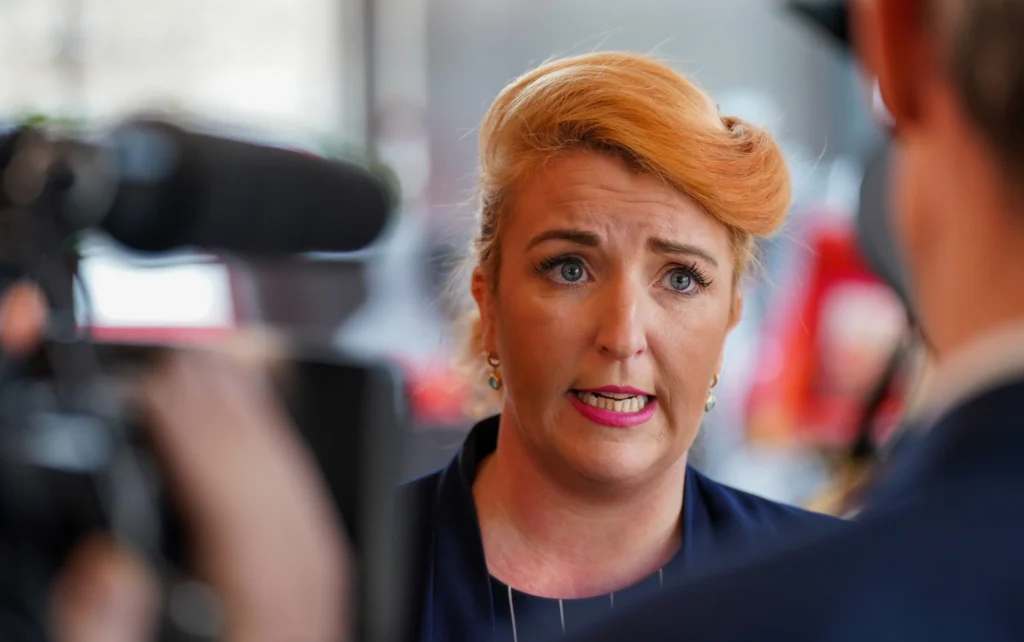Labour is accelerating its push to demonstrate its socialist ethos by proposing legislation to renationalize Britain’s railways before the forthcoming general election.
The initiative to transition the “broken” private rail ownership back to the public sector signals a nationalization drive of a magnitude not witnessed since the era preceding Margaret Thatcher’s aggressive privatization efforts in the 1980s.
On Monday, July 29 MPs will review the proposed legislation, which aims to return control of rail lines to the public domain as current operator contracts expire.
Transport Secretary Louise Haigh, self-styled as the “passenger in chief,” is spearheading this transformative effort.
However, rail companies argue that the project is politically motivated rather than practical, warning that it may lead to increased costs over time. Shadow Transport Secretary Helen Whately echoed these concerns, stating, “Passengers will pay the price.”
Supporters of Haigh assert that the bill is part of a “radical agenda which has not been picked up in the media” and serves to affirm Labour’s socialist credentials. Additionally, legislation to enable community control of local buses is set to be introduced later in the parliamentary term.
The Passenger Railway Services (Public Ownership) Bill, the government’s inaugural major legislative proposal, represents the most significant nationalization initiative since the 1970s, preceding Margaret Thatcher’s mass privatization of public services in the 1980s.
Haigh, leading the bill through Parliament, has been vocal about her intent to enhance passenger experience and service quality on the rail network.
“This bill demonstrates the sheer scale of our ambition to rebuild Britain, putting transport at the heart of our plans for change,” she said.
“As ‘passenger-in-chief,’ I said we’d move fast and fix things, and that’s exactly what we’re doing with this radical legislative agenda.
“Our transport system is broken, but this bill is laying the tracks for a publicly-owned railway that works for everyone and puts passengers first.”
Louise Haigh

The transport secretary recently emphasized the urgency of the Rail (Public Ownership) Bill, stating, “We’re hoping that [the Rail (Public Ownership) Bill] will be done and dusted by the end of the year and we can start early in the new year and then we’ll deliver at pace.”
The bill represents the initial phase of returning rail to public ownership, effectively establishing the legal groundwork for this transition.
Labour’s push for public railway ownership follows numerous failures under private operators. The policy enjoys substantial public support, with a recent Ipsos poll indicating that 54% of respondents favor public rail ownership.
Moreover, a YouGov poll revealed that three-quarters of the public believe the public sector should run rail companies, while only 13% prefer they remain privately operated.
Conservatives Support Rail Nationalization
The YouGov poll also highlighted that six in ten Conservative voters support rail nationalization, compared to just over a quarter who believe railways should stay privately managed.
Labour has identified potential savings in management fees and dividends, estimating it can save £130 million annually by eliminating shareholder payouts.
Following the bill, the government plans to launch Great British Railways, an organization designed to consolidate existing bodies like Network Rail and various rail companies to manage the network more efficiently.
This new public sector entity will be headquartered in Derby, with a transition team already in place. The process will also involve reclaiming lines from private companies as their contracts lapse.
The Department for Transport currently owns LNER, which operates the East Coast Main Line. The Tory government had to re-nationalize LNER after it encountered financial difficulties.
Labour aims to complete the rail renationalization process before the next election, setting the stage for a publicly owned railway system that prioritizes passenger needs and service quality.
READ ALSO: NPP at 32: Boakye Agyarko Calls for Renewal and Vigilance





















